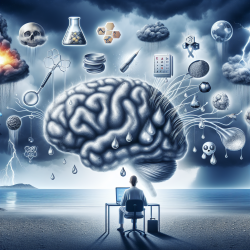Understanding and mastering basic concepts are foundational to a child's academic success in the early years of schooling. The Boehm Resource Guide for Basic Concept Teaching offers a comprehensive approach to facilitate this crucial aspect of early education. Drawing insights from the research article titled "Boehm-Resource Guide Basic to Concept Teaching - Complete Set," this blog post aims to provide practitioners with strategies to improve their skills in teaching basic concepts and encourage further exploration of effective teaching methods.
The Boehm Resource Guide encompasses a teacher's manual with 15 lesson plans, each targeting a different basic concept area. Accompanied by 65 brightly colored concept cards, workbook materials, game cards, and a bound picture book, these resources offer a flexible and thorough curriculum designed to support the mastery of basic concepts. The structured activities are categorized into three levels: introducing concepts through concrete materials, promoting the spontaneous use of concept words, and applying concepts at abstract levels. This progression from concrete to abstract, along with exposure to concepts in multiple contexts, aligns with sound educational practices and caters to diverse learning needs.
For special education directors and practitioners, understanding the potential and limitations of the Boehm Resource Guide is crucial for implementing effective teaching strategies. Here are key insights and practical applications derived from the guide:
- Structured yet Flexible Curriculum: The guide provides a well-organized framework for teaching basic concepts. However, educators are encouraged to adapt the materials and activities to fit the unique needs of their students. This flexibility is particularly beneficial in special education settings, where individualized instruction is key.
- Emphasis on Multi-Sensory Learning: The use of brightly colored concept cards and game-based activities supports multi-sensory learning approaches. Engaging students through visual, auditory, and kinesthetic experiences enhances understanding and retention of basic concepts.
- Sequential Learning: The guide's approach to teaching concepts from concrete to abstract mirrors the natural progression of cognitive development in children. This sequential learning ensures that foundational skills are firmly established before moving on to more complex applications.
- Integration into Daily Routines: Practitioners can incorporate basic concept teaching into daily classroom activities and routines. This integration helps students see the relevance of what they are learning and apply concepts in real-life situations.
- Collaboration with Speech-Language Pathologists: Given the guide's potential for language development, collaboration with speech-language pathologists can enhance the effectiveness of the curriculum. Tailoring activities to address specific language goals can support both concept mastery and language skills.
- Monitoring Progress: While the guide offers comprehensive teaching materials, educators should employ additional tools and assessments to monitor students' progress and mastery of concepts. The use of criterion-referenced measures alongside the guide's activities can provide a more complete picture of a child's development.
- Parental Involvement: Encouraging parents to engage in concept-teaching activities at home can reinforce learning and provide additional practice opportunities. Sharing strategies and resources with families supports a consistent learning environment across school and home settings.
Despite its strengths, the Boehm Resource Guide is not without its limitations. The absence of explicit criteria for mastery and independent means for evaluating the effectiveness of instruction are notable gaps. Practitioners must use their professional judgment and complementary assessment tools to determine when a student has achieved mastery and to measure the impact of instruction. Additionally, the high cost of the materials may be a barrier for some educators and schools.
In conclusion, the Boehm Resource Guide for Basic Concept Teaching provides a valuable framework for enhancing the teaching of basic concepts in early education. By adapting the guide's strategies to meet the needs of their students, educators can support the development of foundational skills that are critical for academic success. Collaboration, creativity, and ongoing assessment are key to maximizing the benefits of the guide and ensuring that all children have the opportunity to master essential concepts.
To further explore the methodologies and insights presented in the Boehm Resource Guide, educators and practitioners are encouraged to engage with the original research article. For a deeper understanding of the guide's foundation and applications, Boehm-Resource Guide Basic to Concept Teaching - Complete Set offers a comprehensive overview.










